
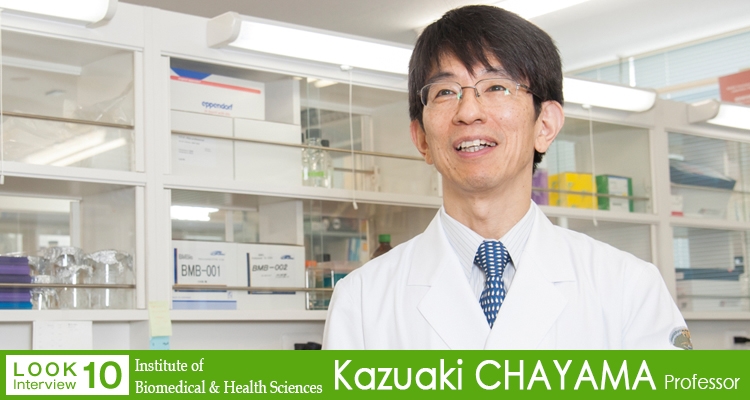
Leading The World As An Expert in The Treatment of Viral Hepatitis and Pursuing The Goal of Eradicating The Hepatitis Virus
Acknowledging continued remarkable results from advanced research, our laboratory is highly well-regarded worldwide.
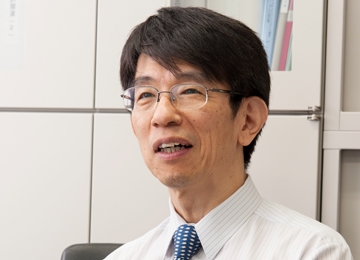
Our research in gastroenterological medicine has focused on development of methods for treatment of liver diseases, such as viral hepatitis, primary liver cancer and non-alcoholic steatohepatitis (NASH), and we have explored the genetic causes from two aspects, that of the virus and of the human host. Within the scope of this research, we actively work with refractory hepatitis B and C and advanced hepatocellular carcinoma.
Our team is proud to have been consistently named as one of the top three research groups in the number of presentations every year by the American Association for the Study of Liver Diseases, the most prominent liver society worldwide. Our laboratory has been widely recognized as the first or second cutting-edge research team in Japan and one of the top 10 in the world.
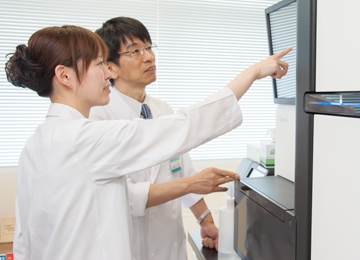
Our team is proud to have been consistently named as one of the top three research groups in the number of presentations every year by the American Association for the Study of Liver Diseases, the most prominent liver society worldwide. Our laboratory has been widely recognized as the first or second cutting-edge research team in Japan and one of the top 10 in the world.
Recent major outcomes in our laboratory have included the identification of a human gene associated with persistent hepatitis B virus infection, the discovery of a protein required for entry of the hepatitis C virus into cells, and the discovery of a "genetic polymorphism of DEPDC5," which is involved in carcinogenesis following hepatitis C virus infection.
We pursue the goal of eradicating the viruses responsible for hepatitis.
Advantages of hepatitis research conducted in Hiroshima - Synergistic effect between basic and clinical research.
Our research base in Hiroshima has a relatively high number of patients with hepatitis. We have a rich store of clinical data from Hiroshima University Hospital and its network of hospitals. Analysis of the clinical data has fueled basic research, which in turn has subsequently enhanced clinical practice. Therefore, our research program emphasizes the importance not only of basic but also clinical research.
At present, more than 2 million individuals in Japan are infected with hepatitis C virus, with a high incidence of subsequent hepatocellular carcinoma resulting in many fatalities. Improvement of treatment modalities for these high risk patients is an urgent matter. However, the mechanisms by which chronic hepatitis C leads to the onset of liver cancer remain largely unknown. One of our outcomes, the "discovery of a gene contributing to the progression to hepatocellular carcinoma in chronic hepatitis C virus carriers," published in 2011, is expected to help to elucidate the mechanism of onset of hepatocellular carcinoma and lead to the development of effective treatments.
I believe the present problems related to hepatitis C virus in Japan can be fully resolved with further investigation.
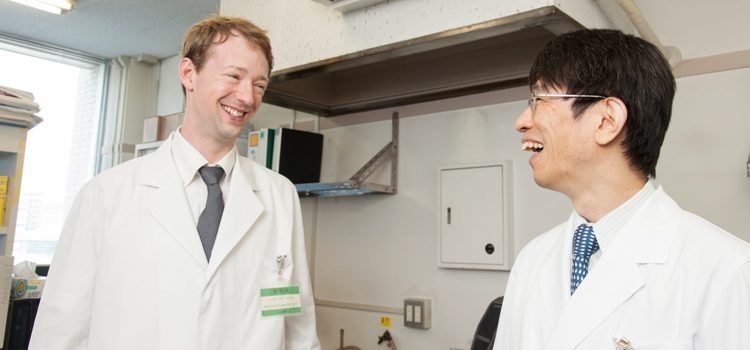
Research that can only be conducted at Hiroshima University.
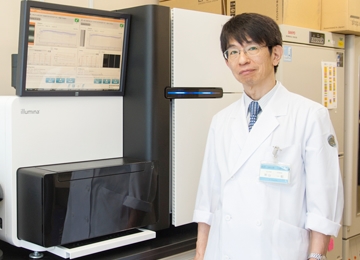
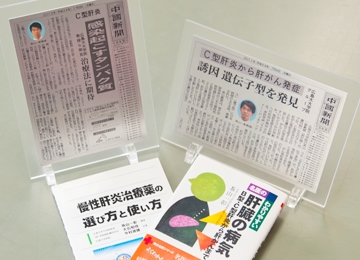
There are specific research projects that can only be conducted at Hiroshima University, including the use of the "human hepatocyte chimeric mouse," which is a chimeric mouse model in which >70-90% of the mouse liver is replaced with normal human hepatocytes and can be infected persistently with hepatitis B and C virus. This mouse model enables us to conduct a wide range of experiments to elucidate the mechanism of viral infection.
We can easily manage this technology, making us an attractive collaborator for many hepatitis researchers worldwide.
I have worked for Hiroshima University for 13 years and believe this institution promotes a unique research environment that encourages investigators to explore freely. I have seen many students advance to become staff members and work hard to continue our research.
We promise to conduct world-leading research on hepatic diseases and encourage ambitious investigators and skilled technicians to join our research team to achieve our highest goals.
Profile
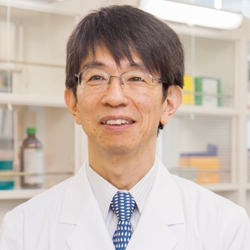

Applied Life Science, Institute of Biomedical & Health Sciences
2012- Executive and Vice President (Medical Affairs), Hiroshima University
2011- Director, Hiroshima University Hospital
2009-2011 Vice Executive (Medical Planning and Community Medicine), Hiroshima University
2005-2011 Deputy Director, Hiroshima University Hospital
2002- Professor, Department of Medicine and Molecular Science, Division of Frontier Medical Science, Programs for Biomedical Research, Graduate School of Biomedical Sciences, Hiroshima University
2000-2002 Professor of Medicine, Faculty of Medicine, Hiroshima University
1996-2000 Head Physician, Department of Internal Medicine, Toranomon Hospital
1986-1996 Doctor, Department of Internal Medicine, Toranomon Hospital
1981-1986 Doctor, Department of Internal Medicine, Mimihara General Hospital
1981 Graduated from Faculty of Medicine, Hiroshima University

 Home
Home